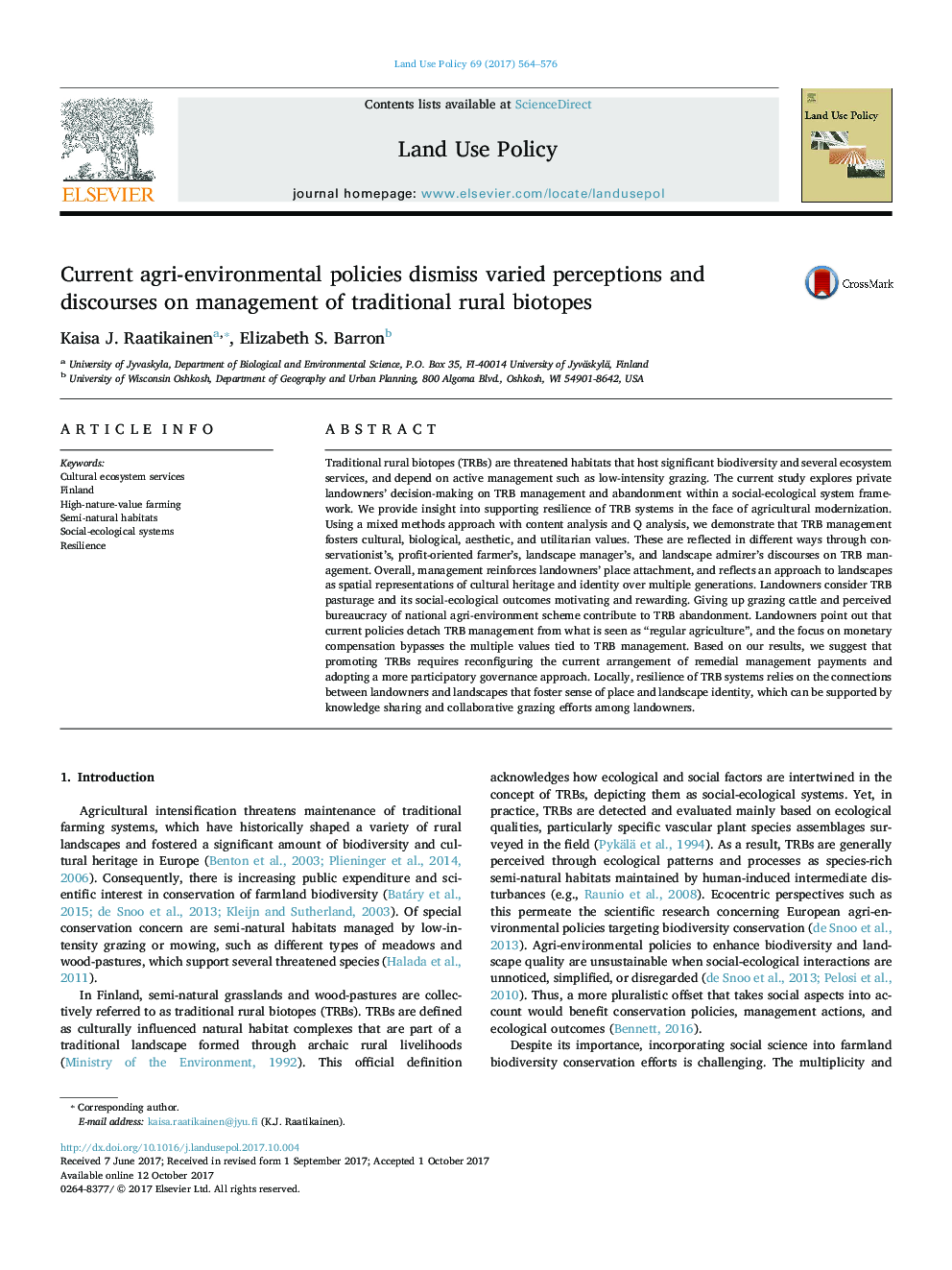| کد مقاله | کد نشریه | سال انتشار | مقاله انگلیسی | نسخه تمام متن |
|---|---|---|---|---|
| 6460459 | 1421814 | 2017 | 13 صفحه PDF | دانلود رایگان |
- Agri-environmental policies overlook non-monetary values of TRBs.
- TRB management fosters biodiversity, cultural heritage, and landscape aesthetics.
- Positive experiences and management outcomes motivate further management.
- Maintenance of TRBs should be based on social-ecological resilience.
- Governance for resilience will strenghten mutual social-ecological interactions.
Traditional rural biotopes (TRBs) are threatened habitats that host significant biodiversity and several ecosystem services, and depend on active management such as low-intensity grazing. The current study explores private landowners' decision-making on TRB management and abandonment within a social-ecological system framework. We provide insight into supporting resilience of TRB systems in the face of agricultural modernization. Using a mixed methods approach with content analysis and Q analysis, we demonstrate that TRB management fosters cultural, biological, aesthetic, and utilitarian values. These are reflected in different ways through conservationist's, profit-oriented farmer's, landscape manager's, and landscape admirer's discourses on TRB management. Overall, management reinforces landowners' place attachment, and reflects an approach to landscapes as spatial representations of cultural heritage and identity over multiple generations. Landowners consider TRB pasturage and its social-ecological outcomes motivating and rewarding. Giving up grazing cattle and perceived bureaucracy of national agri-environment scheme contribute to TRB abandonment. Landowners point out that current policies detach TRB management from what is seen as “regular agriculture”, and the focus on monetary compensation bypasses the multiple values tied to TRB management. Based on our results, we suggest that promoting TRBs requires reconfiguring the current arrangement of remedial management payments and adopting a more participatory governance approach. Locally, resilience of TRB systems relies on the connections between landowners and landscapes that foster sense of place and landscape identity, which can be supported by knowledge sharing and collaborative grazing efforts among landowners.
364
Journal: Land Use Policy - Volume 69, December 2017, Pages 564-576
